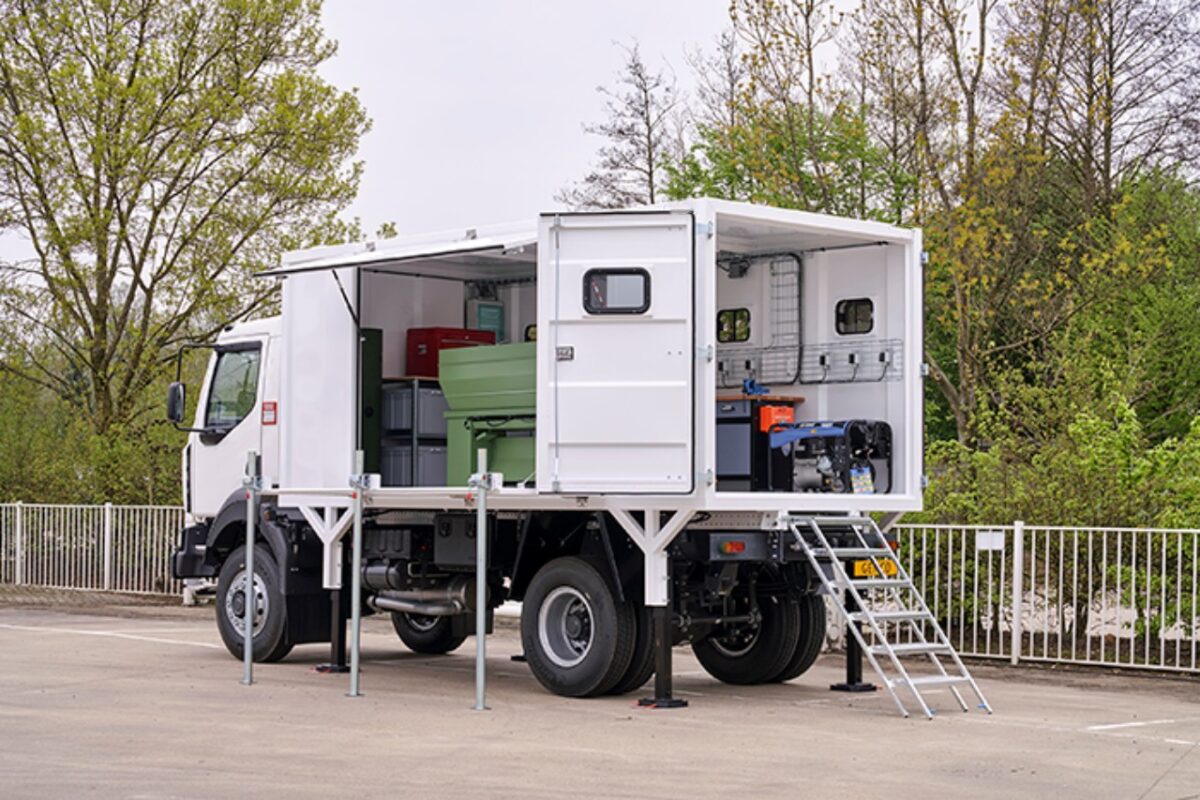The construction industry is a complex and dynamic field that requires precision, coordination, and efficiency to complete projects successfully. One key factor that contributes to project success is the availability of necessary tools and equipment on-site. However, logistical challenges often arise when it comes to transporting and accessing these resources. To overcome this hurdle, construction companies have started embracing the concept of mobile workshops. These self-contained units are equipped with essential tools, machinery, and supplies, allowing workers to carry out tasks efficiently and minimize downtime. In this article, we will explore how a mobile workshop can improve efficiency in construction projects.
- Accessibility and Mobility:
One of the significant advantages of a mobile workshop is its accessibility and mobility. Construction sites are often situated in remote locations or areas with limited infrastructure. This can make it difficult to transport tools and equipment to the site when needed. A mobile workshop solves this problem by bringing the workshop to the site. It eliminates the need for workers to travel back and forth to retrieve tools, saving time and effort. The workshop can be easily transported to different locations, ensuring that resources are readily available wherever they are needed.
- Time and Cost Savings:
Time is a critical factor in the construction industry, and delays can have a significant impact on project timelines and budgets. With a mobile workshop, construction companies can save valuable time and reduce costs. Having all the necessary tools and equipment on-site eliminates the need for workers to wait for resources to be transported or sourced from external suppliers. This minimizes downtime and enables construction activities to progress smoothly. Additionally, companies can avoid rental fees for tools and machinery, as they have their own fully equipped workshop at their disposal.
- Increased Productivity:
Efficiency and productivity go hand in hand in construction projects. By providing a well-equipped workspace, a mobile workshop enhances productivity among workers. It eliminates the time wasted in searching for tools or waiting for equipment to be repaired or replaced. With everything readily available, workers can focus on their tasks and complete them efficiently. The workshop layout can be customized to suit the specific needs of the project, optimizing workflow and minimizing unnecessary movements.

- Improved Safety:
Safety is paramount in construction projects. Inadequate or faulty tools can pose risks to workers’ well-being. By utilizing a mobile workshop, construction companies can ensure that the tools and equipment are properly maintained and in good working condition. Regular inspections and repairs can be carried out on-site, reducing the chances of accidents caused by faulty machinery. Furthermore, having a designated workshop area with proper storage for tools and supplies promotes a clean and organized work environment, reducing the risk of accidents and injuries.
- Adaptability to Changing Project Requirements:
Construction projects often involve multiple phases and different types of tasks. As the project progresses, the requirements for tools and equipment may change. A mobile workshop provides the flexibility to adapt to these changing needs. The workshop can be easily reconfigured or supplemented with additional resources based on the project’s requirements. This adaptability eliminates the need to invest in separate tools or equipment for each project, resulting in cost savings and improved resource management.
- Enhanced Collaboration and Communication:
Construction projects involve various teams and stakeholders, including architects, engineers, subcontractors, and workers. A mobile workshop can act as a central hub where different teams can collaborate and communicate effectively. The workshop provides a shared workspace where professionals from different disciplines can interact, exchange ideas, and coordinate their efforts. This promotes better coordination and streamlines decision-making processes, ultimately leading to improved project efficiency.

In conclusion, a mobile workshop has the potential to revolutionize the way construction projects are executed. Its accessibility, mobility, time and cost savings, increased productivity, improved safety, adaptability, and enhanced collaboration all contribute to improved efficiency. By investing in a mobile workshop, construction companies can optimize their operations, reduce downtime, and enhance overall project success. The convenience of having a fully equipped workshop on-site eliminates the logistical challenges of transporting tools and equipment, saving valuable time and effort. This accessibility also reduces delays and keeps construction activities on track, ultimately saving costs associated with project delays.
The increased productivity that comes with a mobile workshop is a significant advantage. Workers no longer have to waste time searching for tools or waiting for equipment to be sourced or repaired. With everything readily available, they can focus on their tasks and complete them efficiently. This streamlined workflow improves overall project efficiency and ensures that deadlines are met.
Safety is a top priority in the construction industry, and a mobile workshop plays a crucial role in promoting a safe work environment. With proper maintenance and regular inspections carried out on-site, tools and equipment can be kept in good working condition, reducing the risk of accidents. The designated workshop area also facilitates a clean and organized workspace, minimizing hazards and injuries.

The adaptability of a mobile workshop is another key benefit. Construction projects often evolve and require different tools and equipment as they progress. With a mobile workshop, companies can reconfigure the workspace or supplement it with additional resources easily to meet changing project requirements. This flexibility eliminates the need to invest in separate tools or equipment for each project, resulting in cost savings and improved resource management.
Furthermore, a mobile workshop promotes collaboration and communication among different teams and stakeholders involved in a construction project. With a central hub where professionals from various disciplines can interact, exchange ideas, and coordinate their efforts, decision-making becomes more efficient. This streamlined communication enhances overall project coordination and ensures that everyone is on the same page, reducing the chances of misunderstandings or errors.
In summary, a mobile workshop offers construction companies numerous advantages that contribute to improved efficiency in construction projects. Its accessibility, mobility, time and cost savings, increased productivity, improved safety, adaptability, and enhanced collaboration all work together to optimize operations and ensure project success. By investing in a mobile workshop, construction companies can overcome logistical challenges, minimize downtime, and create a more efficient and productive work environment. With everything they need at their fingertips, construction teams can focus on their tasks and complete projects on time and within budget. The future of construction is undoubtedly being shaped by the advent of mobile workshops, and companies that embrace this innovative concept will undoubtedly reap the rewards in terms of improved efficiency and project outcomes.


